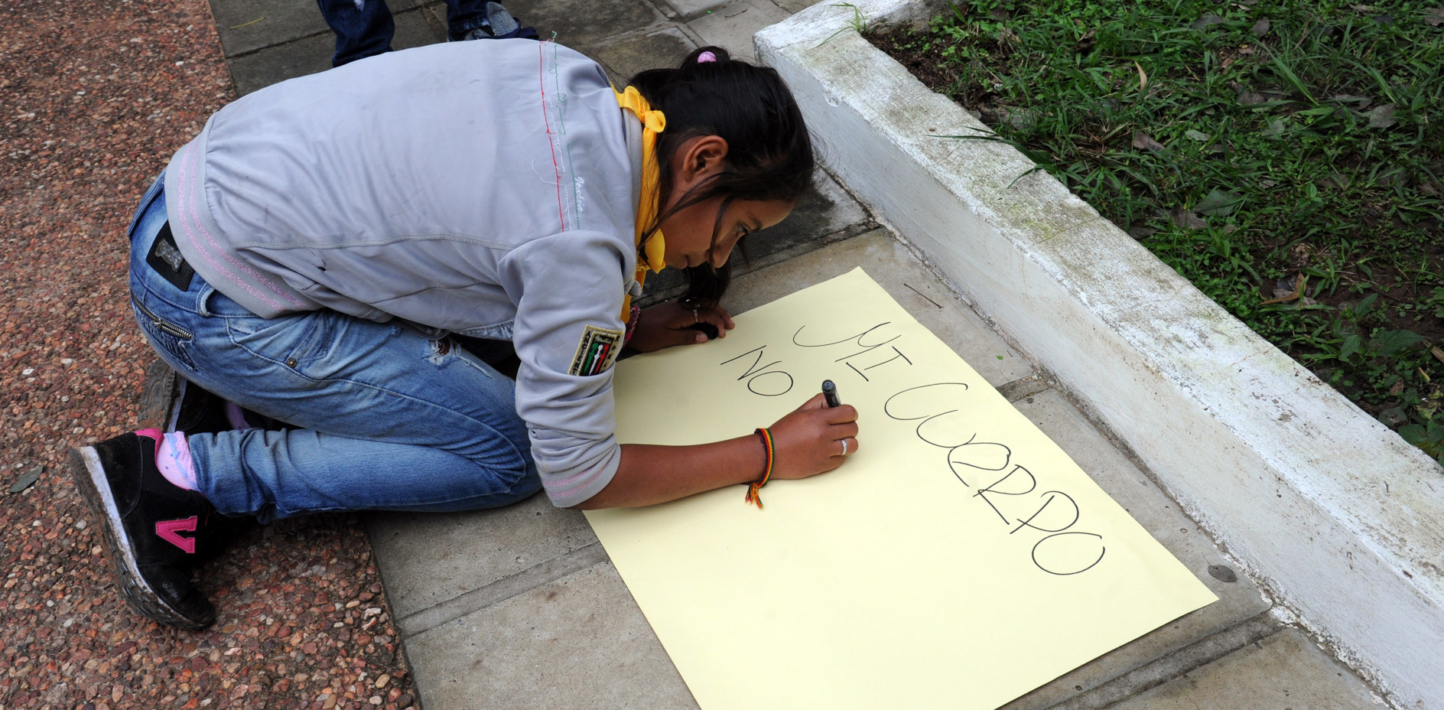The recent Paraguayan Ministry of Education and Science resolution banning the dissemination and use of materials on what the ministry calls “gender theory and/or ideology”, is a major step backwards for human rights and is contrary to Paraguay’s international obligations, said Amnesty International.
Some sectors of society and religious groups launched a campaign to withdraw materials on sex, reproduction, gender equality and discrimination from the public education system. The resolution, dated 5 October 2017, in which the ministry bans these materials, was published today.
Under cover of the malicious expression ‘gender ideology’, what is really happening here is the suppression of education about equality and discrimination, which is an international obligation of the Paraguayan state not an ideology
Erika Guevara-Rosas, Americas Director at Amnesty International
“This decision represents an extremely dangerous backward step for human rights in the country. Under cover of the malicious expression ‘gender ideology’, what is really happening here is the suppression of education about equality and discrimination, which is an international obligation of the Paraguayan state not an ideology”, said Erika Guevara Rosas, Americas Director at Amnesty International.
After signing and ratifying a series of international commitments, including the Convention Against All Forms of Discrimination Against Women, the Sustainable Development Goals and the Montevideo Consensus, to name but a few, the Paraguayan state is obliged to promote equality and oppose discrimination.
The gender equality principles set out in these international human rights treaties, all ratified by Paraguay, and in the country’s Constitution, aim to eliminate all forms of discrimination against women and against persons who suffer exclusion and diverse forms of violence because of their sexual orientation or gender identity.
“Women and lesbian, gay, bisexual, transsexual and intersexual (LGBTI) people regularly suffer discrimination and violence because of the prejudice and stereotyping that is a feature of our societies. Excluding education on equality from the curriculum is tantamount to state promotion of violence and discrimination, with extremely grave consequences”, said Erika Guevara Rosas.
Excluding education on equality from the curriculum is tantamount to state promotion of violence and discrimination, with extremely grave consequences
Erika Guevara-Rosas, Americas Director at Amnesty International
ADDITIONAL INFORMATION
To base decisions about public policies on the religious beliefs of some sectors of the population violates international human rights agreements and article 24 of Paraguay’s Constitution, which states: “No religious faith will have official character” and “the relations between the State and the Catholic Church are based on independence, cooperation and autonomy”.
Paraguay’s Constitution also recognizes the principles of equality and non-discrimination (article 46) and guarantees equality (article 47) and equal rights for men and women (article 48). Curiously, the ministry justifies its resolution by referring to these principles as well as to articles on the protection of the family and marriage.
Under pressure from religious sectors regarding the measure, the Ministry was questioned at a public hearing of Congress, which responded by issuing this resolution 29664. This resolution bans the inclusion in educational materials of basic information about human rights, sexual and reproductive education and other important subjects.


